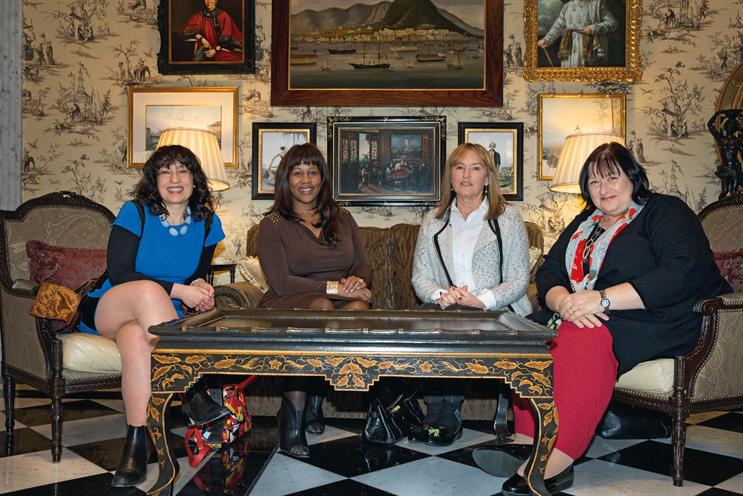Was it harder for women to reach the top back then? Christine Walker, now running a building company but who, 30 years ago, led the media buying department at a full-service agency before going on to found Zenith and then Walker Media, has a brusque answer to the question.
"It was difficult in the 70s and 80s. There are far more women now in senior roles in media agencies," she says. "There was a sea change (none of you are particularly going to like this). In the 70s and 80s, there was 15 per cent commission.
The industry was awash with money and I was earning a ridiculous amount. When commission started dipping post the separation of media and creative services, media salaries dropped overall and I think there was a direct correlation between the dip in overall salaries and more women rising in media agencies.
"I obviously didn’t take any cut in salary. But graduate-entry level salary in media agencies didn’t go up for years. As salaries lowered, females were brought in and, eventually, some of them shone through."
Tess Alps, a PHD chairman who became the Thinkbox chair and Media Week’s leader of the decade, agrees: "When media separated, the men who commanded higher salaries gravitated to TV sales houses."
|
Walker ‘You’ve got to do your apprenticeship, as it were. I was giving advice to a young woman in the business. She rang me up and said: "Well, they haven’t given me a pay rise." I said: shut up, just do your apprenticeship. You’re working for a company that has some amazing, successful women; you haven’t got a problem being a woman there. Do you know what? I never, ever interviewed for another job. The grass isn’t greener. I used to come in on Sunday because I couldn’t wait to see how my TV slots had done. 18:26 on a Saturday: The A-Team – how had it done? I couldn’t wait to see how it did.’ Unerman ‘Find the company where the culture allows – in fact, encourages – you to thrive. Settle for nowhere else.’ Alps ‘Ask for more, don’t expect things to come to you; ask for it, go and get it, claim it. And you’ve got to stay ahead of technology, whether you like it or not; I’ve always made myself do so. Try everything new.’ |
So the opportunity for women to progress to senior roles in media agencies came as salaries lowered owing to the split of media commissions. According to Christine, this explains why fewer media owners have senior women at the top.
Tess goes on to talk about how much easier it was to stand out in the early days of her career: "You had rarity value… it was easier to stand out. People remembered you. I hope they remembered us for something other than just rarity."
Christine interrupts: "I didn’t really care so long as they remembered me."
"We were a bit of a novelty – I don’t think we exploited that," Tess adds.
"Oh, I did!" Christine replies.
Well, perhaps that was acceptable in the 80s.
Sticking with the past, I ask how much women in media clubbed together. Wacl didn’t really encourage media women in until the late 80s, so were the senior women drawn to each other for support?
Tess says: "It wasn’t particularly to do with being women. I just love Chris; she was outrageous, she swore a lot, it was fantastic."
Christine interjects, sotto voce: "I smoked a lot."
Tess continues: "Chris was where the fun was."
And role models back then?
Tess says: "I had a role model to an extent – the first woman to be head of a TV company was my boss, Pauline Shuker at Television South West. It was very much lauded and made a big thing of, and then she left after a year (to marry a millionaire) and she was absolutely crucified – as if she had let all women down.
"What frustrated me was that I should have been her deputy and she wouldn’t let me because it was another woman – so she chose a man. That moment was when I discovered ambition. It was the sense of injustice; of being good and being passed over. I didn’t have any ambition up until that point. I’d been head girl, I was incredibly bossy but I didn’t want to be powerful in this industry until that moment."
Karen Blackett, the chief executive of MediaCom, brings us back to the present: "It has changed on the media agency side – there are some fabulous women running media agencies. But the media owner side is still more of an issue.
"I’m not ambitious – I’m competitive. Because I’m a single mum, I’m more driven because I know what it’s going to mean to me. But there’s no gender thing in the people who work for me. I want a pipeline of great women coming through (and I will take measures to ensure that), but you pick people for what they can do. I don’t think you get everything in one person. There are traits that you pick to surround yourself with, but it’s not due to gender."
Tess says: "The only thing that I can say is genuinely different is the self-publicity. I would absolutely recommend that women were better at self-publicising. Fantastic blokes, who work incredibly hard, but make sure that they get the credit. I don’t think every woman does that."
So the old guard believe that media agencies (versus media owners) have seen women rise to the top partly because of the lack of male competition. On the other hand, it was much easier to stand out as a great woman back then.
Overall, we all agree that it’s tough to succeed whoever you are and you need support and a range of tactics, including and especially being very good at what you do.
Sue Unerman is the chief strategy officer at MediaCom


